'Frozen 2' has big shoes (or, rather, snow boots) to fill. Not only did the first film win two Academy Awards and become the second highest-grossing animated film of all time behind 'The Lion King', but the cultural footprint left by 'Frozen' is such that, even now, you would be hard-pressed to find anyone, adult or child, who can resist singing along to the chorus of 'Let It Go'. With the success of this first instalment in mind, we sat down with the co-directors of the sequel, Jennifer Lee and Chris Buck, as well as the producer, Peter Del Vecho, to chat about everything from enchanted forests to the diversification of Disney.

-
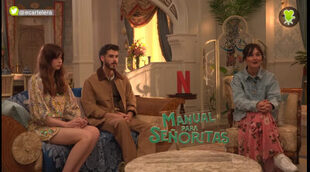
-
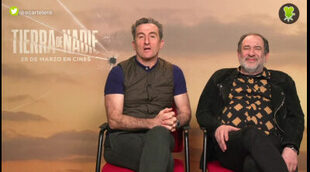
-

-
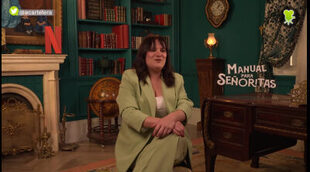
-
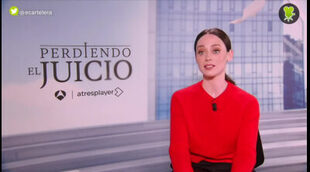
-
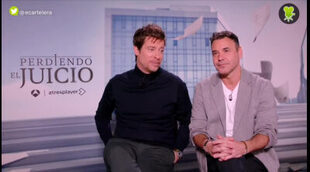
Interestingly, both Jennifer Lee and Chris Buck say that they thought about the success of the first instalment as little as possible. "We just couldn't think about it because you know you can't replicate," explains Lee. "That's not our job - we're storytellers. Our job is to tell a great story and to tell the right story for these characters, not the story that we think other people might want to hear, or we won't do it justice. So for us it was about saying, 'We love that the first film allowed us to do another one and that 'Let It Go' is extraordinary - we love 'Let It Go' - but we also love the way our characters grow and who they become because we all go through change, we don't stay the same' ... But the only way we could do that was if we didn't think of measuring success. Time will tell".
Indeed, Jennifer Lee confesses to not even noticing the full extent of success of 'Frozen' until she attended a screening in New York over the holiday season. "It was full and I thought 'Wow, it's still full a month later'. And they were not just singing the songs with it, they were reciting the lines, too, which made me go: 'They've seen this more that once'. At first I didn't think it was going to go well because the Olaf figure at the front of the theater had been torn apart [laughter]. Afterwards, I called [Buck and Del Vecho] and I said, 'I have just had the most extraordinary experience'."
Both Buck and Del Vecho are also quick to gush about their surprise over the incredible response to the first film, from fan videos to singalong editions. "We couldn't keep up with it all", says Buck. "One of my favourites was the US Navy baseball team, the baseball players. They lip-synched to 'Love Is an Open Door'. My wife loved it so much that she reached out to them on Facebook...she invited them over to California, they came out, they came to the studio, they lip-synched for the studio. It was unreal how it was touching so many different people".
With such incredible success under their belts, what was it, then, that led the three to develop an idea for the sequel? As with any good story, it began with a 'what if?'.
"We were doing a 'Frozen' short, and we saw them animated and we missed them. We'd been getting a lot of questions about Elsa's powers and we were asking them, too " says Lee. "We were with those characters. I was writing journals as Elsa, we were doing monologues, he was drawing as the characters... We were doing this work just so we could go, 'What is the journey that's right for them?' Kristen [Anderson-Lopez] built the songs in the same way".
The journey that was right for Anna, Elsa and the rest of their snowy sidekicks, is centered around the theme of change. As the children that crowded the screenings of the first film have grown and the characters themselves have settled into their roles in the Nordic-inspired kingdom of Arendelle, Lee says, "Change is frightening, and we resist it. We resist often the passion in ourselves and we resist growing up because it's scary. So we looked at fear versus love in terms of change. It was something that we felt emotional about".
The team also made the decision to explore the theme of change through the film's soundtrack, written once again by Robert Lopez and Kristen Anderson-Lopez, who took home the Oscar for Best Original Song with 'Let It Go'. "We let this movie tell us the songs that it needed. We looked at this film as the second act of a Broadway musical, with the first 'Frozen' film being the first act, establishing the set-up and the wants of the characters, and then the second act going deeper and more emotional with a lot of the songs," says Buck.
"I 100% think the songs in this film resonate on a deeper level and speak to different parts of your life, and I think that's beautiful," says Lee. She points to an 80s ballad devised for the surly male lead, Kristoff, as an example. "It lets you inside his head and see what his true love is, which is something he couldn't vocalise. Only in musicals can you do that".
'Frozen 2' is also set to delve beyond the walls of the Nordic-inspired kingdom of Arendelle with the introduction of an enchanted forest and an indigenous group of people named the Northuldra who remain isolated from the world by a magical fog. The creators behind the sequel say that it was a research trip to the Scandinavian locales of Norway, Finland and Iceland as well as collaboration with the Sámi people of Norway that provided much of the inspiration for this aspect of the story.
"Walking through the forests of Norway and Finland, you definitely felt like they were enchanted. We were told some of the legends surrounding them, like how the big boulders in the middle were thrown by the giants that were there, and how there were hidden people underground", explains Buck. Indeed, Nordic mythology plays an important role in both the original film and its sequel, drawing on figures from folklore such as the nokken to flesh out this fantasy world. If Anna represents fairytale, the ordinary hero who perseveres, then Elsa represents myth and folklore, the character who has to carry the weight of the world for us, the directors explain. "We loved that Elsa was connected somehow to nature and mythology. We looked at her as a mythical character". They even cut an early comedic sequence in which a magical water horse attempts to drown Kristoff for lying about his feelings, as they wanted to emphasise the dangers faced by Elsa and her strength in overcoming them. "We tried to give that danger a sincerity. The most satisfying moment was seeing Elsa go up against that force, to see them fighting like two warriors. To see Elsa having to find a new part of herself".
For Jennifer Lee, however, these forests provided as much thematic inspiration as they did the setting for 'Frozen 2'. "We thought about the concept of an enchanted forest in literature. Why do we have them? They are metaphorical places of transformation that represent the ideas of growing up and of change that 'Frozen 2' looks at. The theme of fear versus love, but through the lens of change - the forest was the perfect playground to do that. It felt like we were finding the story that was already there in those moments".
However, all three creators were quick to point out that they worked closely with a focus group of Sámi people of Scandinavia to ensure that their portrayal of the Northuldra did not cross into cultural appropriation by attempting to mimic the traditions or belief systems of these indigenous groups. "I think we did stay more specific to Scandinavian magic and old folklore but without specifically going to Sámi beliefs out of respect. There was a lot of back and forth, and they were incredible partners in that way", says Jennifer Lee.

In addition to cultural appropriation, another sensitive topic around which 'Frozen 2' treads is that of gender and sexism, both onscreen and in the studio itself. Jennifer Lee, who has recently been appointed as Chief Creative Officer at Walt Disney Animation Studios and has overseen the appointment of more female directors and a greater sense of balance in writing rooms, was quick to dismiss the Canadian academic Jordan Peterson's argument that the female-led 'Frozen' is "deeply propagandistic". "I think it's really funny that a story is propaganda just because you let two women drive it. That right there is the problem. We just made authentic characters. These women are three dimensional. They are not perfect. They are flawed. They are heroic at times, they are vulnerable at times. They're real women, and real women have a lot of responsibilities. Real women do act this way", insists Lee. "I mean, look at Queen Elizabeth I. For 40 years, she was one of the most successful monarchs. She carried a lot of responsibility. That's the kind of way we look at it versus 'she goes to the ball'. That's not what we're doing, because that wouldn't be the reality if they were the leaders of this kingdom".
This emphasis on real women and their responsibilities extends to the team behind the camera, too, with Lee discussing extensively how Disney Animation itself is changing to accommodate greater diversity in creative positions. "In the studio we often talk about how talent is universal. It knows no gender, it knows no race. Talent is talent, but access isn't always the same. So one of our big moves is creating access, creating rooms where there are female creative leaders because what this does is make women in the room speak up more", Lee explains. "It's a position that I feel privileged to have and to be able to do in such a great community, particularly in animation where the want for that change is there all around us. I think we're a little bit ahead of other parts of the film industry".
Del Vecho adds that he believes that it is Disney's dedication to diversified rooms that strengthens their storytelling. "It makes the films better. The more discussions we have, the more points of view, really helps the story process and making the movies". The three creators point to one moment in the creation of the first film, in which the men and women of the writer's room were divided over whether or not the villainous Hans should kiss Anna, with the women arguing that for him to not kiss her would ultimately be the more painful, and powerful, rejection. "I thought the cruelty of 'he wouldn't even kiss me, he wouldn't even try' is so much more painful, and we're in Anna's point of view, so we have to go there. You know, you go home, you're at the door, you're lingering, and then he doesn't kiss you - it says everything!" says Lee. "That kind of stuff is very true to our experience". In the end, the women won the argument and Hans's resultant rejection of Anna drew "audible gasps" from the audience, a reaction that Buck credits Lee and the rest of the female staff with. "There's a balance in the room and I think that's why 'Frozen' works so well, and hopefully 'Frozen 2', also", he says.
Despite multiple drafts and arguments over finer plot points, one thing remained a constant throughout the construction of the story of 'Frozen 2': its conclusion. "As we started talking, we came up with the idea of where they would end up. Of what would be a satisfying ending for Anna and for Elsa. Once we did, once we settled on an answer, it became exactly what you'll see in the movie, which is what originally satisfied us. It became what we call our 'true north'. Even as the story went through all of its different versions, the ending stayed the same", says Buck.
The future of Walt Disney
Walt Disney Animation Studios has grown since it's humble beginnings nearly a century ago. With new projects such as Disney+, the streaming platform, giving way to shorter-form works and more projects per year, questions have been raised as to whether Disney is concerned about the dominance of their multi-billion dollar empire diminishing over time. Jennifer Lee, however, insists that these new developments are creating opportunities rather than spreading Disney studios too thin.
"Disney always prioritises creative quality first and really supports the artists, which allows all of us to create more opportunities to share work", confirms Lee. "When we wanted to do 'Frozen', we went to them and right away they just asked us 'what do you need?' When we talk about where we want to go creatively, the studio is very supportive and open to letting us have our own identity. You don't get that everywhere". She goes on to praise Disney and their new colleagues over at 20th Century Fox for their collaborative approach that opens up a space for artistic integrity. "The 'Disney Machine' isn't even something that we understand because that isn't how any of our films are made. There's small groups of people and it's an exhausting process of pushing each other creatively...I think for all of us, these developments just mean that we're going to be able to drive storytelling to new places".

As for Disney's future projects, Lee promises that as well as the usual feature films produced by the studio, with the most recent announcement being 'Raya and the Last Dragon' set for release in November 2020 and focusing on a warrior named Raya as she searches for the last dragon in the realm of Kumandra, Disney Animation will be involved in the wealth of short-form content set to be released on Disney+.
"I'm really excited. New kinds of musicals are coming. I look ahead at the schedule and as of now it's all originals. We've now added four new directors who have either grown from within the company or who we've brought in and they are just doing fantastic work and are already developing projects. We want to have a nice range of projects but still be filmmaker driven and not just throw noodles at the wall", says Lee. "The great thing about Disney+ is that we're being experimental with it. We're collaborating with artists in ways that we couldn't before and we're looking at technology differently. We're playing with the hand-drawn style to figure out what that means for us in 2019. There's all these things that we're getting to do with Disney+ that, in doing one film a year as our total focus, we weren't able to do before. So for us, that's been great. We have a series of projects in the works and we're giving new talent the chance to direct these shorter form pieces for the first time. It's very busy, but in a good way! But I can't say anything. I know [Chris Buck] is doing something that I'm very excited about".
"It's not 'Frozen 3'", Buck deadpans.
Whatever it is, we'll certainly be watching and patiently waiting for more news to emerge over this coming winter - after all, the cold never bothered us anyway. 'Frozen 2' will hit UK cinemas on the 22nd November.



